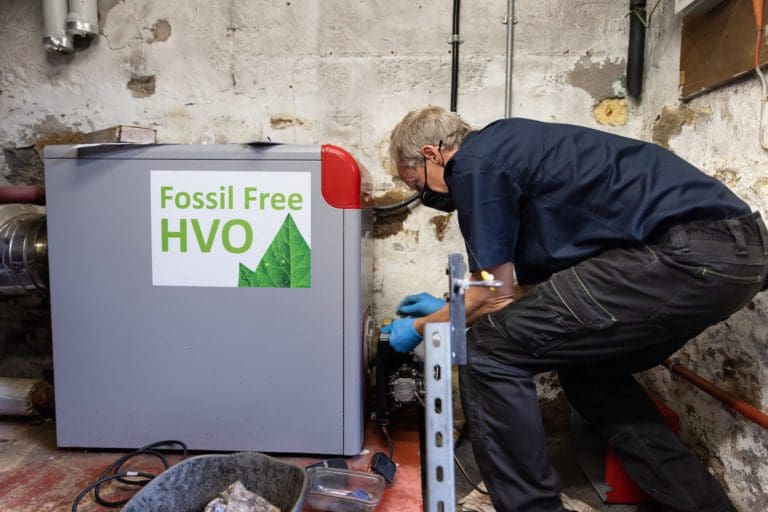
We compared the capital and running costs for converting the homes from oil heating to either HVO or an air source heat pump (ASHP) – which is the Government’s preferred decarbonisation option – modelled over a 15-year period.
To assess the installation cost of the heat pump option, the Government’s own heat pump checker web tool was used for each home. Worryingly, it showed that all 17 homes needed other energy efficiency improvements along with the heat pump install, resulting in an average installation cost of over £23,000. By comparison, conversion to HVO cost around £500 – a much more affordable option for the householders.
The benefits of the energy efficiency work meant that the heat demand for the electric heating option was reduced, and the superior efficiency of the heat pump meant that running costs were reduced, although this is ultimately dependent on the electricity price.
However, the modelling showed that, with appropriate government support, HVO was cheapest overall, and was the only option that had roughly comparable costs to the existing oil heating. As a result of these findings OFTEC and UKIFDA have been able to tell government that two simple policy changes would enable HVO to be offered as a viable and attractive alternative to an air source heat pump for existing oil heated buildings:
- Bring the fuel duty rate of HVO for heating in line with that of kerosene heating oil.
- Create a mechanism that would extend or mirror for home heating the current provisions within the Renewable Transport Fuel Obligation (RTFO) which already results in a HVO price reduction for users of vehicles, mobile machinery and aircraft.
